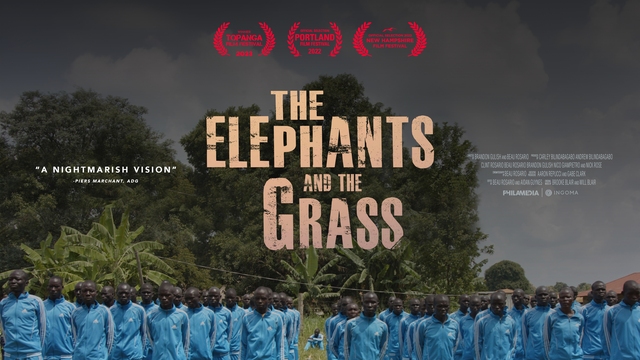The Producers

Beau Rosario & Brandon Gulish - Co-Directors
Beau Rosario and Brandon Gulish are the Co-Directors of The Elephants and the Grass. They have years of experience as visual storytellers, but what first took them to South Sudan was water. While volunteering for an organization that impacts the lives of women in South Sudan through clean drinking wells, they met Shamira and her mother Yasmin. They immediately connected with these inspiring women, seeing elements of their own mothers, daughters, and wives. Being ill-prepared to tell their story alone, they have leaned heavily on a diverse team that includes South Sudanese men and women, a Rwandan production team, and experts from around the world. This is their first feature-length documentary.
Making The Film
It’s the world’s newest country, and yet the young nation of South Sudan has one of the bloodiest histories. The statistics about rape, assault, and murder amongst its citizens are staggering. Five years ago, we wanted to understand why the world no longer cared about South Sudan. The crushing but moving story of a mother and daughter completely changed our perspective on everything. The Elephants and the Grass is a film that elevates the voices of those most affected by the war. The goal was to humanize South Sudan, not sensationalize the violence. Focusing on public understanding of South Sudan’s conflict while holding a mirror to the audience’s own struggles with trauma, tribalism, and hatred.
We first heard Shamira’s story while volunteering for an NGO focused on providing clean drinking wells in South Sudan. We were stranded in Uganda while the war had picked up in Yei. We chose to spend our time in the Rhino refugee camp, documenting the work that local aid organizations were providing. We talked to refugees in the camp during our breaks and became struck by the resilience of their stories, especially the women of South Sudan. They deserved a platform to tell their perspective. To empower them without imposing our agenda, we set up a microphone in a hut and invited anyone who had the desire to share their stories. We left the room so that everyone was private. That night, we heard Shamira’s voice for the first time, and her story completely knocked us over. We spent the next five years getting to know her and her mother, supporting them, and helping Shamira get her education. Roughly one year after we first met Shamira, we committed to making a feature-length documentary with her own words (her subtitles are in her handwriting).
We knew we would need to lean on many people to help capture this story. We sought as many South Sudanese partners and contributors, but we were often met with fear and reluctance. For many, it was too dangerous to share their personal experiences, for fear of retribution from the government against them or their families. So, we brought on Andrew and Carley Bilindibigao as producers. Being Rwandan, Andrew had a deep and personal connection to what it was like growing up in a country decimated by civil war. He introduced us to 100 Pixels, a crew of filmmakers from Rwanda who helped us approach this story with nuance and tact. We also had input from the subjects and other South Sudanese men and women during production who asked to remain anonymous. The film was not easy to complete but was made possible by many contributors worldwide, especially our South Sudanese partners.
 Twelve-year-old Shamira Muhammed recounts the difficult decision she and her mother must make when facing certain death in South Sudan. They choose to trek the 100 miles of brutal terrain in hopes that they will find a new life in a refugee camp in Uganda. Failed murder attempts, weeks in the harsh African bush, and unthinkable abuse on dangerous dirt roads cause them to consider if a violent death in their own home would have been a more humane choice.
Twelve-year-old Shamira Muhammed recounts the difficult decision she and her mother must make when facing certain death in South Sudan. They choose to trek the 100 miles of brutal terrain in hopes that they will find a new life in a refugee camp in Uganda. Failed murder attempts, weeks in the harsh African bush, and unthinkable abuse on dangerous dirt roads cause them to consider if a violent death in their own home would have been a more humane choice.
 Topanga Film Festival | Coyote Award
Topanga Film Festival | Coyote Award
 New Hampshire Film Festival | Official Selection
New Hampshire Film Festival | Official Selection
 Portland Film Festival | Official Selection
Portland Film Festival | Official Selection







